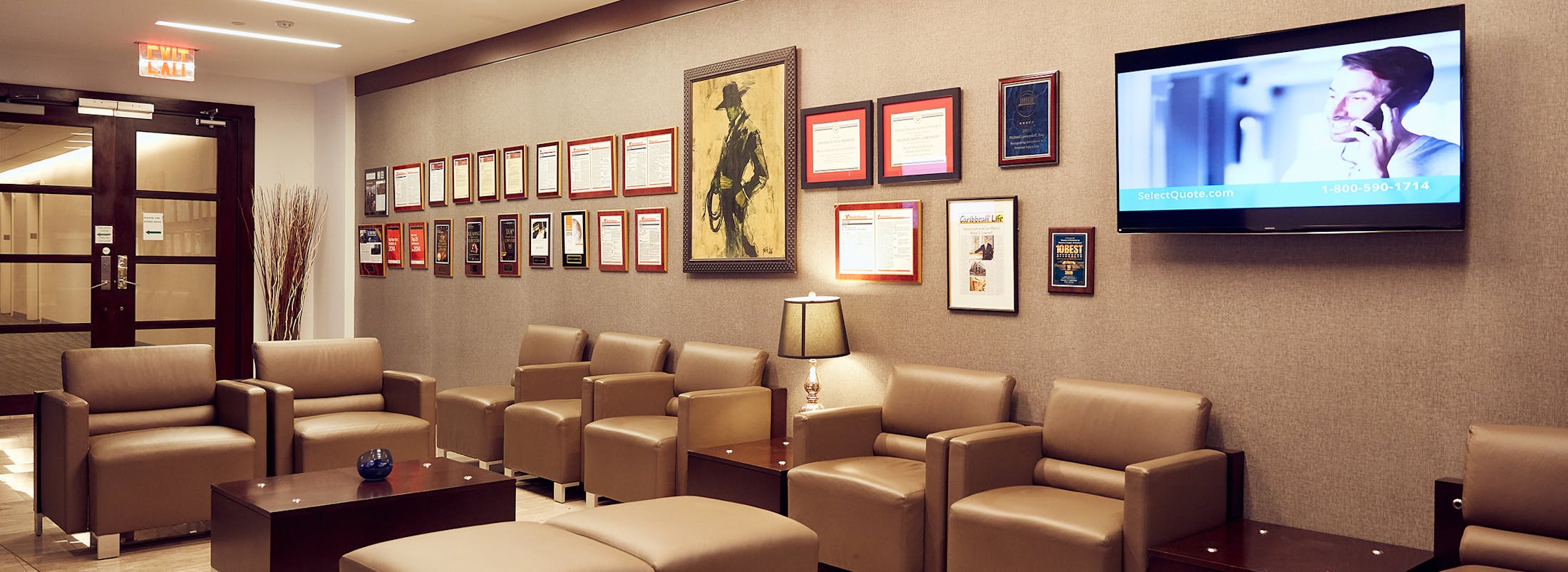Is A Slip & Fall Injury Considered A Personal Injury?
New York slip or trip and fall accidents can happen anywhere, whether it's at a retail store, restaurant, office building, hospital, a neighbor’s home, or even on public place like a park or sidewalk. If you've suffered a slip and fall accident in New York, you may be wondering whether it qualifies as a personal injury. The answer is yes. Under New York laws, a slip and fall injury is considered a personal injury if it occurred due to the negligence of another person or entity.
Understanding Premises Liability in New York
Premises liability refers to the legal responsibility of property owners or managers to keep their property reasonably safe and free of hazards that could cause injury to others. This law applies to both public and private properties such as retail establishments, apartment buildings, and other public spaces.
According to New York law, property owners and managers have a duty to maintain their property in a safe condition and to promptly address any dangerous conditions that manifest themselves. If they fail to fulfill this duty and someone is injured as a result, they may be held liable for any resulting injuries and damages.
In some cases, property owners may be held responsible for injuries that occur due to natural hazards such as snow and ice. For example, if they fail to clear their sidewalk of snow and someone slips and falls, they may be held liable for any resulting injuries.
How to Prove Premises Liability in NYC?
In New York, the burden of proof lies on the injured party to show that their harm in a slip and fall accident was caused by the disregard of legal obligations by the property owner, commonly referred to as negligence. This negligence can lead to physical injuries, emotional distress, and monetary losses.
For example, in cases of icy sidewalks, the NYC Administrative Code § 16-123 states that property owners in the city are obligated to remove snow and ice from the sidewalks adjacent to their properties within a reasonable timeframe after the precipitation has stopped.
To build a successful premises liability claim, you must establish the following critical elements:
- You were lawfully present on the property at the time of the incident.
- The defendant had ownership or control over the property where the incident occurred.
- There were hazardous conditions on the property that posed a risk of harm to visitors like you.
- The premises owner acted negligently in addressing the hazardous conditions.
- The premises owner failed to take reasonable steps to fix or prevent the dangerous conditions from causing harm.
- The premises owner neglected to warn guests about the potential hazards that existed on the property.
- The premises owner's negligence was the direct cause of your injuries.
- You suffered harm, such as physical injuries or financial losses, as a direct result of the unsafe conditions on the property.
Statute of Limitations for Slip and Fall Accidents in New York
You have three years from the date of the accident to file a slip and fall injury claim against the negligent parties. If your accident involved a government agency or employee, you must first serve a Notice of Claim within 90 days of the incident. This notice informs the government that you intend to sue, and it gives them a chance to investigate the incident and potentially settle the matter before a lawsuit is filed.
We are Ready to Take Action Against Negligent Property Owners in New York and Get You the Maximum Compensation You Deserve
If you or a loved one has been a victim of a trip and fall accident, don't let your injuries and losses go unnoticed. Turn to The Law Offices of Michael S. Lamonsoff for expert legal representation. With a reputation as one of the most tenacious personal injury lawyers in New York, Michael S. Lamonsoff, also known as "The Bull", has recovered over $500 million in awards for his clients.
Our team of experienced attorneys has successfully represented numerous New Yorkers in premises liability cases, fighting tirelessly to get them the compensation they are entitled to. Call us at 212-962-1020 or contact us online to set up a free consultation with our legal team.

